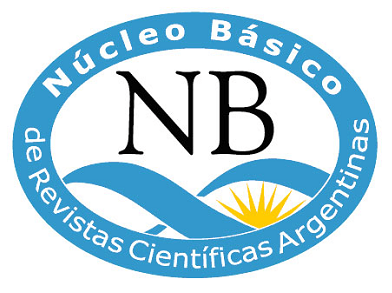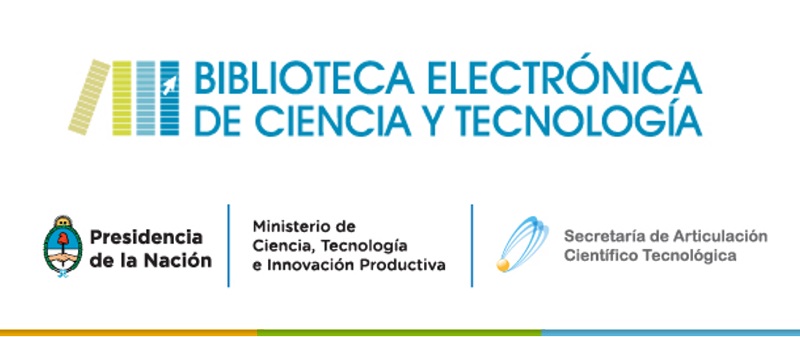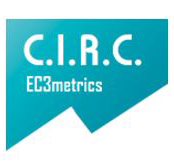Feminist and sexual diversity activisms in non–metropolitan cities: reflections on collaborative ethnography
DOI:
https://doi.org/10.14409/extension.2024.20.Ene-Jun.e0012Keywords:
feminist and sexual diversity activism, non-metropolitan cities, collaborative ethnography, collective mapping, biographical narrativesAbstract
The article aims to reflect on the experience of a university extension–research project developed at the National University of Rafaela that recuperates collaborative ethnography as a theoretical–methodological approach for the co–construction of knowledge. For this purpose, we describe the collaborative work carried out with feminist and sexual diversity activists in the cities of Rafaela and Esperanza during the year 2023 and we reflect on the implementation of two techniques used to develop the project: collective mapping and biographical narratives. The selection of these techniques facilitated the production of a collective knowledge through the recovery of the experiences, narratives and knowledge of activists, and the construction of a diagnostic analysis on the problems, demands, access, violations, and practices of transformation that concern citizenship in the area of gender and sexuality.
References
Arfuch, L. (2002). El espacio biográfico. Dilemas de la subjetividad contemporánea. Fondo de Cultura Económica.
Abdala, L. (2021). Sé que me cortaron, pero lo olvidé inmediatamente cuando te vi. La violencia obstétrica como un nuevo marco para dotar de inteligibilidad las memorias y experiencias de los partos en la Argentina reciente. Sexualidad, Salud y Sociedad. Revista Latinoamericana. https://doi.org/10.1590/1984-6487.sess.2021.37.e21203.a
Abdala, L. (2022). Aproximaciones a la cultura contemporánea del parto. Experiencias biográficas de parto en casa de mujeres de la ciudad de Santa Fe. Papeles de Trabajo, 16(29). https://revistasacademicas.unsam.edu.ar/index.php/papdetrab/article/view/1352/3313
Bard Wigdor, G. & Bonavitta, P. (2021). Feminismos decoloniales y saberes plurales anfibios en el Capitalismo Neo–extractivista. Sul–Sul – Revista de Ciências Humanas e Sociais, 1(3), 6–24. https://doi.org/10.53282/sulsul.v1i03.681
Burton, J. (2020). Desbordar el silencio, tejer complicidades. Acciones y voces del feminismo neuquino por el derecho al aborto. Tren en Movimiento Ediciones.
Busaniche, M., Kreig, N. y Rodríguez, V. (2023). Remando: relatos del movimiento de mujeres y disidencias en la ciudad de Santa Fe. Ediciones UNL.
Callafel Sala, N. (2020). Configuraciones subjetivas y discursivas de la vivencia materna: de maternidades encarnadas y activismos emancipatorios. Investigaciones feministas, 11(1), 101–111. http://dx.doi.org/10.5209/infe.64110
Collin, F. (2006). Historia y memoria, o la marca y la huella. En Collin, F. (2006). Praxis de la diferencia. Liberación y libertad (pp. 111–126). Icaria.
Di Marco, G., Fiol, A., Schwarz, Patricia K. N. (Comps.). Feminismos y populismos del siglo XXI. Frente al patriarcado y al orden neoliberal. Teseo.
Dionisio, C. y Cravero, C. (2021). Estrategias feministas en las universidades: Sistematización de una experiencia en Argentina. Reencuentro. Análisis de Problemas Universitarios, 2(80), 79–98. https://reencuentro.xoc.uam.mx/index.php/reencuentro/article/view/1059
Fasano, P. (2006). De boca en boca. El chisme en la trama social de la pobreza. Antropofagia.
Felitti, K. y Abdala, L. (2022). Salud sexual y reproductiva en círculos de espiritualidad femenina (Argentina, 2014–2021). Cultura y religión, 16(2), 56–82. https://www.revistaculturayreligion.cl/index.php/revistaculturayreligion/article/view/104 3
Felitti, K., Cepeda, A., Mateo, N., Rustoyburu, C. A. (2022). Tecnologías biomédicas y feminismos Historias de dispositivos, políticas y agenciamientos. Grupo Editor Universitario.
Felitti, K. y Palumbo, M. (2023). Las relaciones sexo afectivas en la cuarta ola feminista: diagnósticos, debates y propuestas (Argentina, 2018–2022). Debate feminista, 66, 1–30. https://doi.org/10.22201/cieg.2594066xe.2023.66.2411
Greene, R. y De Abrantes, L. (2021). Ni urbano ni rural: lo ‘citadino’ como tipología para pensar la ciudad no metropolitana. EURE, 47(141), 231–250. https://doi.org/10.7764/EURE.47.141.11
Jones, D. (2010). Sexualidades adolescentes. Amor, placer y control en la Argentina contemporánea. Consejo Latinoamericano de Ciencias Sociales, 165.
Jones, D. (2022). La masculinidad: varones y feminismos. Universidad Nacional de General Sarmiento.
Katzer, L., Álvarez Veinguer, A., Dietz, G., y Segovia, Y. (2022). Puntos de Partida. Etnografías colaborativas y comprometidas. Tabula Rasa, (43), 11–28. https://doi.org/10.25058/20112742.n43.01
Katzer Molina, L., Álvarez Veinguer, A. (2022). Formas comunes y artesanales de la etnografía colaborativa. Tabula Rasa, (43), 97–123. https://doi.org/10.25058/20112742.n43.05
Katzer, L. y Samprón, A. (2011). El trabajo de campo como proceso. La” etnografía colaborativa” como perspectiva analítica. Revista Latinoamericana de Metodología de la Investigación Social, 2, 59–70. http://www.relmis.com.ar/ojs/index.php/relmis/article/view/59
Lassiter, L. (2005). Collaborative ethnography and public anthropology. Current anthropology, 46(1), 83–106.https://www.journals.uchicago.edu/doi/10.1086/425658
Leclerc Olive, M. (2009). Temporalidades de la experiencia: las biografías y sus acontecimientos. Iberforum. Revista de Ciencias Sociales de la Universidad Iberoamericana, 4(8), 1–39. https://ibero.mx/iberoforum/8/pdf/NOTAS%20PARA%20EL%20DEBATE/1.Michel.pdf
Passerino, L. M. (2016). Experiencia, feminismo, testimonio y subjetividad. Clivajes. Revista de Ciencias Sociales, (6), 14–30, https://clivajes.uv.mx/index.php/Clivajes/article/view/2147
Radi, B. (2018). Mitología política sobre aborto y hombres trans, Sexuality Policy Watch. https://sxpolitics.org/es/3945-2/3945
Santarelli, M. y Anzorena, C. (2021). Religiosidad y experiencias emocionales sobre aborto. Con X, 7(2–2021), 1–29. https://doi.org/10.24215/24690333e037
Scott, J. (2001). Experiencia. La ventana, 2(13), 42– 73.https://doi.org/10.32870/lv.v2i13.551
Stéfano, M. (2021). Masculinidades (im)posibles. Violencia y Género, entre el poder y la vulnerabilidad. Galerna.

Published
How to Cite
Issue
Section
License
Copyright (c) 2024 Leila Abdala, Leila Martina Passerino, Denise Zenklusen, Victoria Batiston

This work is licensed under a Creative Commons Attribution-NonCommercial-ShareAlike 4.0 International License.


























